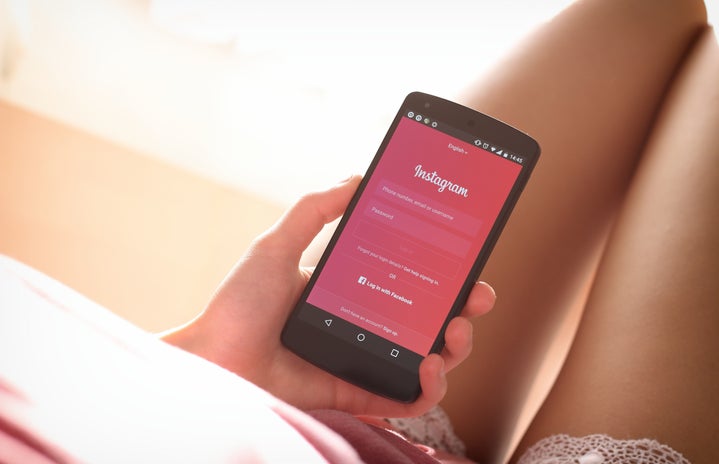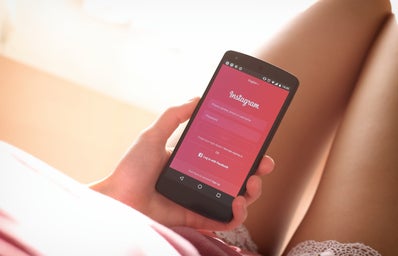Article contributed by Amy Zhang, Barnard College Class of 2023.
Whether you call your throwaway Instagram account your “finsta,” your “priv,” or your “spam,” it’s probably been getting a fair bit of use since the world turned upside down in March. I mean, it’s basically a cozy little personal rant room. Missing campus? Annoyed with your parents? Wishing that person would text you back? Vent, cry, play sad music, and share pictures from the good old days, all to a small, pre-vetted audience of friends who won’t judge you for feeling what you’re feeling. The small secondary account has firmly rooted itself as one of our favorite ways to use one of our favorite social media platforms. But is it truly private or as efficient as other options?
Yes, your “finsta” can be set to private, viewable only to some of your closest, most trusted friends — normally ranging from 10 to 100 followers. It might not even be linked to your main account, with a random username and profile picture. But there’s always the risk of leaked screenshots, several cases of which have cost finsta owners their friendships, leadership positions, or jobs. Some infamous celeb scandals have even started with leaked content: Demi Lovato mocking Selena Gomez on her second known finsta, or Bhad Babie accusing Skai Jackson of trash-talking on her finsta.
And even if you post something temporarily, get the validation you crave, and delete it 24 hours later, The Verge recently revealed that a user requested his data only to find Instagram still had his deleted posts and messages on file. The bug has reportedly since been resolved, but the Facebook-owned company still maintains the right to store your content for “a commercially reasonable time for backup, archival, and/or audit purposes.” Insta doesn’t sell your data per se, but every time you visit a website — to look at products, or buy something — the applications use that data to tailor your feed so similar ads follow you wherever you go. The finsta is a convenient way to vent to many friends at once, but how deep can you divulge before worrying about oversharing to potential employers or advertisers who want to translate your wants and fears into profit?
What about TikTok? Well, you’ve probably seen the articles about the ample anxieties over privacy and data usage. What’s more, on a large scale, the enigmatic algorithm seems to doggedly “shadowban” (unofficially silence by lack of promotion) videos by BIPOC voices, low-income creators, plus-size bodies, and more. On the user level, it learns individual preferences, then curates a pre-filtered echo chamber of similar videos. Then you’re scrolling for hours on end through a digital wonderland… and TikTok can sell every minute of those user metrics to advertisers.
So where can you speak your mind to close friends with 100 percent security, and keep up with everyone while giving your eyes a break from the screen… or amass thousands of followers to raise awareness (and funding) for your causes or goals? Ad-free platforms like Audtra, the first voice-based social network and marketplace, may be the answer. Whether speaking a thought into the app, sharing a mini-audio broadcast, or editing and summarizing the shockingly accurate auto-transcription, you can save your updates on a private timeline, post to just your friends’ feeds, or share with the whole wide world.
As the app uses a subscription model supported directly by users (similar to Netflix), Audtra never shows you ads, sells your user data or privacy to advertisers, or tracks individual activity in the first place. Since the company’s unable to view or access user content (nor see what the user sees on the front-end) unless it’s exported publicly, there is no cringe factor. Besides being (thankfully) audio and transcript-only (God knows I work hard enough to look presentable on Zoom for 5 to 8+ hours a day), this is the first app that has ever succeeded in making me sound good in a recording.
The cherry on top? Audtra has created a new economy: one that empowers anyone to monetize their voice from anywhere. During the pandemic, Audtra gave everyone (and continues to give .edu members and nonprofit partners) a year of free membership and channel status, so students like me can capitalize on our following. That means you can still share your finsta-replacement rants with your inner circle, while sharing other quips publicly. Grow from micro-influencer to financially independent, without (or while!) hustling for your next internship or pandemic-proof job.
Ever wanted to try stand-up comedy without the live audience, OnlyFans without the video, or Substack without having to write? Take an existing podcast to the next level? Fundraise directly for an awareness campaign you are passionate about (instead of soliciting on GoFundMe, Patreon, or even Venmo)? Even with just 200 followers subscribing at $1/month, you could net $1,200/month on the app, with subscription tiers, followers, and earnings multiplying from there. In the age of tiny, filtered faces on 2D screens, close your eyes and escape to a voice-centric haven. It’s like I’m right next to you, in your ear: “Ease up on the finsta, hot stuff. Reclaim your internet privacy and join me on the next social network.”

